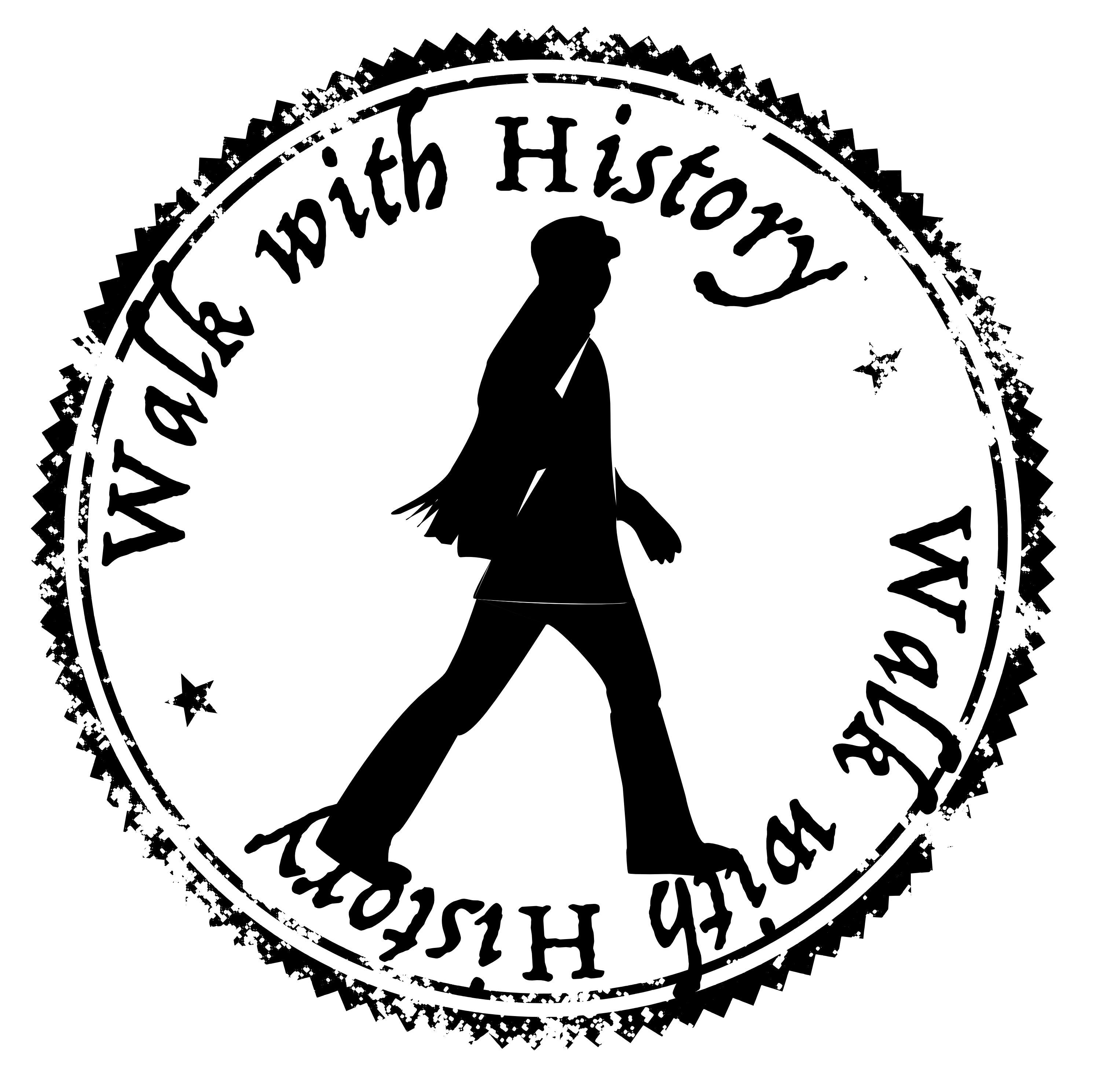Song of the South (1946) | the History Behind the Hit (preview)
➡️ Help history. 2 minutes for 7 questions 🫡
Scott and Jenn dive into the 1946 classic, "Song of the South," and let me tell ya, it's a ride!
Right off the bat, we explore the film's controversial history and why you won’t find it on DVD or streaming platforms today. We reminisce about our childhood memories with Uncle Remus and those catchy tunes, but we also unpack the deeper social issues and stereotypes the film presents. It's a mix of nostalgia and reality as we chat about the film's impact and the legacy of the folk tales it draws from.
So grab your popcorn and join us as we navigate this complicated piece of cinematic history!
🎥 Watch the full movie review here
💬 Comment on this episode here
-------------------------------------------------------
⬇️ Help us keep the show going and explore history with us! ⬇️
🧳 Plus...get free travel resources in your inbox.
-------------------------------------------------------
📧 contact: talkwithhistory@gmail.com
Talk with History is a global Top 40 History podcast on Feedspot!
Transcript
All right. Good afternoon, good evening, good morning. Whenever you're. Whenever.
Jenn:And good night.
Scott:And good night whenever you're watching us. So. So this is Scott and Jen from Walk With History, but we are doing something a little bit different.
And this is kind of part of our Watch With History series. This is more of a podcast, but we're calling this new video. Let me just start over here.
Jenn:Yeah.
Scott:I did not start off well.
Jenn:No.
Scott:I'm going to say welcome to something new. This is History behind the Hit.
Jenn:It's new.
Scott:Yeah.
Jenn:So it's hard.
Scott:Okay. Welcome to something that we're trying a little something a little bit different here on Walk With History. We're calling this History behind the Hit.
This is a free preview of what is going to be premium members Only content going forward. This video here is going to be free.
If you like this and you like the stuff that we're doing going forward, please, we encourage you to become a member.
But what we're going to do here with History behind the Hit is we're going to talk about historic movies, content, stuff that's out there, mostly largely from places that we've been to, because that's what we do here on Walk With History. We go to the location, we take you there, and we talk about it. But we're going to watch the movie. So we're going to watch Songs of the South.
Jenn:Song of the south. With you.
Scott:With you. So you guys can watch along with us.
We're going to talk about history along the way, the actors, some of the history of, like, kind of what's going on, what they're representing throughout this, this film, and just kind of harken back, you know, a little bit to something that we watched when we were young.
Jenn:Sure. Well, the controversy about it, like, why can't you find it today on dvd? Why doesn't Disney stream this?
r this because it came out in:I just visited a place that's really connected to it. So we decided to do this first.
Scott:Yeah. So if you like content like this, if you like some of the movies that we're going to. To do in the future, because we're going to.
This kind of gives us a chance to expand what we're going to do, potentially Jaws and talk about history there. Because Jen's going up To Martha's Vineyard, some stuff in Alaska. Jen's been to Normandy.
So there's a whole swath of movies that we can talk about because we've been there and we're going to talk about the history and where those movies take place. So if that interests you, this may interest you.
And as we build up this content, this will be again, be the future videos will be premium members only content. So thank you to our members who support us.
That gives us gas money and food money to go out and kind of do these things that we do so that we can share them with you and share them with our audience. So welcome to history behind the hit Here we Go.
Jenn:I love the classic opening.
Scott:It's great.
Movie:Life is not. They too busy going along all mixed up with their own troubles. Like the time that Ms. Sally, Mr. John was coming down to the plantation.
Scott: right, this movie came out in: Jenn:It was very big movie back then. But it's already problematic because people don't understand. Is this before the Civil War or after the Civil War?
Scott:So one thing that I'll. I'll remind folks, if you guys want to skip ahead and kind of see some of the cartoon sections with Brer Rabbit and Tar Baby and Bear Fox. Yeah. And.
And see some of those. I'll put those time codes down below. Those will be chapters. So if you guys want to skip ahead to some of those parts, please feel free.
Jenn:Yeah. How to McDaniel wins the Oscar for portraying an enslaved woman. Mammy to the good to have a man o' Hara family.
And she got a lot of criticism for this, but she said, I could make $2 a week as a maid or I can make 200 a week pretending to be a man. I hope you're a noisy boy.
Scott:Counted Hattie McDaniel.
And she actually said about this movie, if I had one, if, if I had for one moment considered any part of the picture degrading or harmful to my people, I would not have appear. So she actually said that about this particular movie. And then her co star, James Basket, who's Uncle Remus, who we'll see in just a bit.
He said he supported the film as well.
He said, I believe that certain groups are doing my race more harm in seeking to create dissension than can ever possibly come out of the Song of the South. So very interesting about this. So just remember that as we go through this.
Jenn:Yeah. I think it makes people uncomfortable because this is actually very accurate.
Scott:Yeah. So zippity doo dot. This is the first place where zippity doo dot comes from. This is. This is where it originated, was in this movie.
Jenn:So this wins the Academy Award for best song.
Scott: ou know, as early as like the: Jenn:Oh, wow.
Scott:They had, they had some in there. And again, Disney was kind of close to the forefront of this.
Jenn:Oh, there's Bear Rabbit for the first time.
Scott:So another little interesting fact that I looked up about some of the stuff in this movie. So if you've ever been to Disneyland or Disney World, Splash Mountain is a big ride inspired by this movie. Prior Rabbit, prior patch, all that stuff.
nging now. So I think back in: Jenn:Oh, it is for sure. But Disney's shied away from this.
Scott:Yeah, they've shied away from this for a decade. Long time. You can't get this on streaming services. You can't get this on Disney. Plus they won't release it on dvd.
Like I actually had to download find this off of internetarchive.org and I'll leave a link for that.
Jenn:Yeah, and they don't really talk about it either when they're questioned about Song of the South.
Scott:Yeah. But they are actually making way for Tiana's Bayou. So Princess and the Frog.
Jenn:So they think.
Scott:Yes. So they actually filmed this. I just looked it up in Phoenix, Arizona. There was a plantation and cotton fields that were constructed down there.
Jenn:Oh, so they built.
Scott:So they actually built a set down there and then they filmed the other part, parts of it at the Samuel Golden Studios in West Hollywood. So it was in Arizona and in studio lots.
Movie:It ain't gonna fool nobody. It ain't got no eyes.
Scott:Oh, yes, indeed.
Movie:Eyes. I'm glad.
Scott:Now you were saying that the way that people misunderstood this particular cartoon because.
Jenn:They don't know the story, they don't.
Scott:Know the background, that this is a. A long running kind of multicultural folktale. Folktale.
Jenn:And so they think it depicts racism. And when someone says tar baby, they're being racist about the color of your skin. An African American skin. And so it's supposed to be derogatory.
And because they've never heard tar Baby before. That's the only way that they will decipher it.
And so because of that negative connotation and people don't want to explain or work against it, it just gets buried.
Scott:It kind of turned into that people became to understand it as that it equated the two together.
Jenn:We're still seeing a class difference. Two barefoot bum with shoes. He's in front. Right.
Scott:So, you know, another thing I heard about this is they're taking the song out of Disney parks.
Jenn:It's too bad.
Scott:It really is too bad because this, the song is no class, no nothing. It's. It has no connotation of that. It's only associated with the movie.
Jenn:Yeah.
Scott:And it's such a classic happy song. Just kind of, kind of unfortunate. At least that's from what I read online. I don't know if they've done that or not, but how do you do?
Jenn:Oh, hello there. Briar Rabbit.
Scott:So now the kids can see Briar Rabbit.
Jenn:Well, I think the hardest part is like these folk stories have stood the test of time. These are real stories that were really passed down from Africans here in America that inspired their lives and they deserve to be heard and told.
And just because of this catalyst, it's what's taken telling them is so problematic and Disney just wants to avoid it. We could learn from this.
Scott:Yeah, they could totally embrace it. And honestly, like if they just put this on Disney plus trust the parents to have the conversation with their kids about this.
This is a learning tool.
Jenn:They don't. This is almost like them banning books. Right. Like they're banning this because it's so problematic that they don't want you to. They don't.
They want to be the thought police. And how you might see this instead of like, this is negative. They're showing some negative connotations here. Be aware of that.
Look at how it's romanticizing this. Look at how it's not talking about this. This is part of American history. I think Disney. This is problematic of the time.
And you know, we don't not show Gone with the Wind.
Scott:Yeah, I.
Jenn:Right. We. I think this should still be something that is seen.
I think these folks tales are so important and historic and I feel like why when we're afraid of stuff like this and we just want to put it away because we don't know how to talk about it. I think we need to talk about it.
Scott:Yeah. Well, I hope our audience. I hope you enjoyed if you stuck all the way through through with us all the way to the very end.
I would like you to comment in the comments. Zippity doo da right. Go ahead. Go ahead and drop us a comment if you stuck with us all the way through the very end. Because this is a long video.
This is.
We're trying something new, but this is a way for us to kind of sit down personally with our audience, with you, our members, and talk about the history of some of our favorite movies and really just kind of like what, Watch it together. And that's our goal with this.
Jenn:Yeah.
Scott:And again, if you like this, if you think you would like more of this in the future. So thank you for joining us on this very first ever history behind the hit.
Jenn:Yeah.
Scott:I would love to know what you think about Song of the south, about kind of the history behind this, if you learned anything new. And we, we hope you guys kind of join us next time and consider joining Walk with History Community and the membership. There's.
Jenn:Yeah.
The real stories, the real stories behind this from Laura Plantation brought over from Africa and oral history which is so vital to the history of America. They deserve to be told. They don't deserve to be put away and shunned or not put out there because we're so afraid to have this conversation.
Like, let's have this conversation. Let me know how you feel about this.
If this brings back memories to you, if you remember this movie or you don't, and if you've ever heard these folk tales before.
Scott:So thank you again and let's watch some history next time.
Jenn:Yeah. Thank you.





